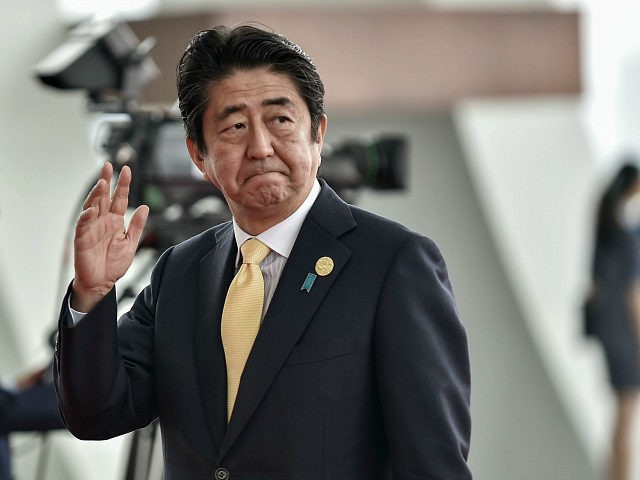Prime Minister Shinzo Abe has announced that he will visit Pearl Harbor later this month with U.S. President Obama, becoming Japan’s first leader to travel to the site of the Japanese attack that pulled the United States into World War II 75 years ago.
“This visit is for the sake of consoling the souls of those who died in the war,” PM Abe told reporters on Monday, reports Reuters. “I would like to show to the world the resolve that horrors of war should never be repeated.”
“We must never repeat the horror of war,” he added, according to The New York Times (NYT). “I want to express that determination as we look to the future, and at the same time send a message about the value of U.S.-Japanese reconciliation.”
“Mr. Abe’s visit will be one of a series of efforts by Japan to come to terms with its wartime history, without engaging in direct apologies,” notes the Times. “He is in a unique position to carry off the trip, as a nationalist who has been outspoken about Japan’s need to move beyond its history and play a greater role in its own defense.”
Echoing NYT, Jeffrey Kingston, director of Asian studies at Temple University Japan campus, told Reuters that an outright apology from the Japanese leader would be unlikely during his Pearl Harbor visit.
“He won’t go as far as to apologize, but there will be a demonstration of contrition. He will follow Obama’s model” in Hiroshima, noted Kingston. “Obama has shown the way forward in addressing the past without whitewashing and denying.”
However, Abe did express “deep repentance” over Japan’s role in WWII while addressing the U.S. Congress last year.
The White House billed the Japanese prime minister’s visit to Pearl Harbor as a testament to the alliance between to the two former wartime foes.
“The two leaders’ visit will showcase the power of reconciliation that has turned former adversaries into the closest of allies, united by common interests and shared values,” the White House said in a statement.
Abe’s visit is expected to take place December 26-27, seven months almost to the day after President Obama became the first sitting U.S. president to visit Hiroshima, the Japanese city on which the United States dropped an atomic bomb during the final stage of WWII in 1945.
Although Obama did not explicitly apologize, he told the world in late May that America’s decision to drop nuclear bombs on the Japanese cities of Hiroshima and Nagasaki arose from humanity’s worst instincts, including “nationalist fervor or religious zeal.”
In Japan, where the decision to attack Pearl Harbor still stirs strong feelings, “Politicians there still pay homage to the ‘heroes’ of Pearl Harbor — meaning the Japanese aviators and others who died in the attack,” notes NYT. “There is a museum exhibit in their honor at Etajima, an island off Hiroshima, that once served as the Imperial Japanese Naval Academy, a Japanese equivalent of the United States Navy’s training academy at Annapolis.”

COMMENTS
Please let us know if you're having issues with commenting.